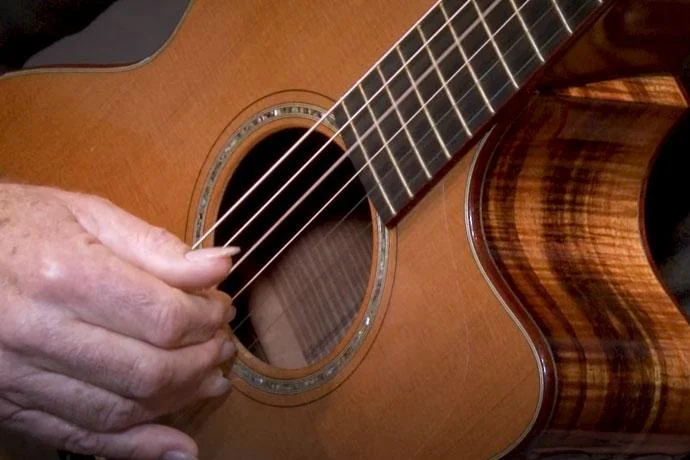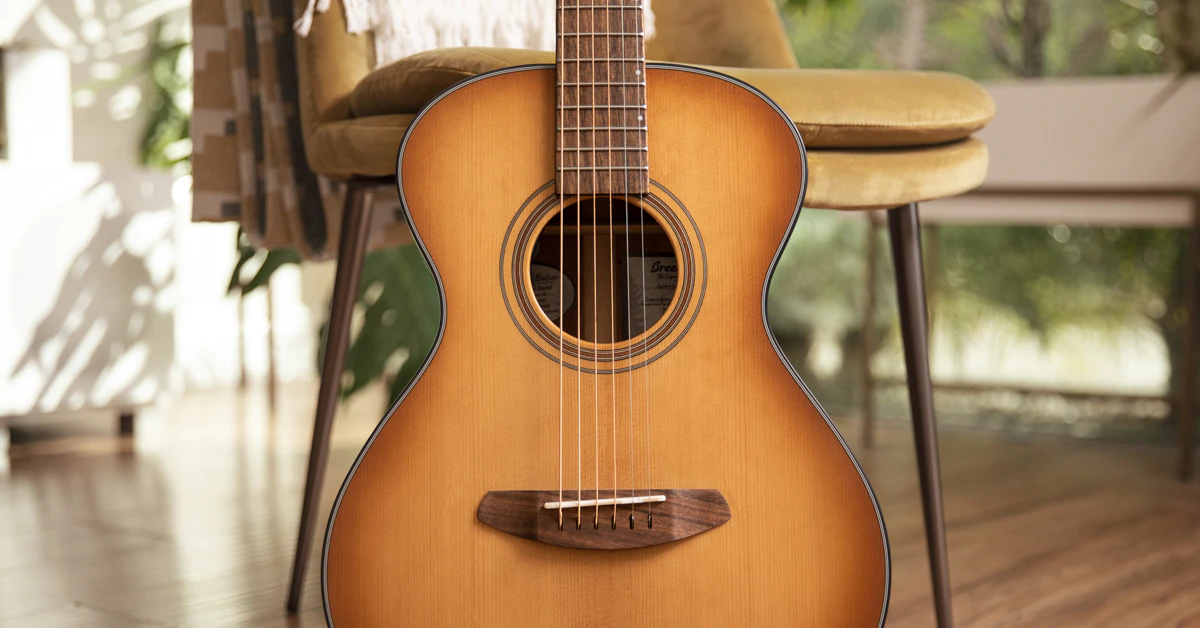Are you tired of constantly changing your acoustic guitar strings and not being satisfied with the sound? As a guitarist myself, I know how important it is to have the perfect strings for your instrument. And with so many options out there, finding the right ones can be overwhelming. But fear not, because in this article, I’ll share my top picks and provide a comprehensive guide on what to consider when choosing the best guitar strings for acoustic guitars.
Whether you’re a beginner or an experienced player, having the right strings can make all the difference in sound quality and playability. So let’s dive into our top picks that are sure to elevate your playing experience. Plus, I’ll share some expert tips based on my personal experience as well as extensive research on different string types and their performance. By the end of this article, you’ll have all the information you need to find the perfect set of strings that will bring out the best in your acoustic guitar!
So, what is the best guitar strings for acoustic?
The best guitar strings for acoustic guitars will depend on personal preference and the type of sound you want to achieve. However, some top picks that are highly recommended by musicians include D’Addario EJ16 Phosphor Bronze Acoustic Guitar Strings, Martin MSP4100 SP Phosphor Bronze Acoustic Guitar Strings, and Ernie Ball 2146 Earthwood Medium Light Acoustic String Set.
When choosing guitar strings, it’s important to consider the gauge (thickness) of the strings as well as the material they are made from. Generally, thicker gauges produce a fuller sound while thinner gauges are easier to play. Phosphor bronze is a popular choice for its warm tone and long-lasting durability.
It’s also worth considering coated strings which have a protective layer to prolong their lifespan and maintain their tone. Some players prefer uncoated strings for their natural feel and sound.
Ultimately, the best guitar strings will vary depending on your playing style and the specific characteristics of your guitar. It’s always helpful to try out different brands and types until you find what works best for you.
Understanding the Different Types of Acoustic Guitar Strings
When it comes to acoustic guitars, the strings play a crucial role in shaping the sound and feel of your music. There are generally three main types of acoustic guitar strings: nylon, steel, and silk and steel. Each type brings its own unique character to the instrument. For instance, nylon strings are soft and warm, often used in classical guitar playing. They provide a mellow tone that’s perfect for fingerpicking styles or gentle melodies. On the other hand, steel strings offer a brighter, more resonant sound that projects well with strumming patterns, making them popular among folk and rock musicians.
Additionally, there’s a blend known as silk and steel strings which combines both materials for added versatility. These offer some sweetness from the silk while retaining brightness from the steel core. Choosing between these string types often depends on personal preference as well as musical style—each offers different tension levels that affect playability too! So if you’re curious about exploring new sounds or improving your technique, experimenting with various string types can truly enhance your experience behind an acoustic guitar.
Whether you crave warmth or brightness in your music,
the right choice makes all the difference!
Read also: how to read bass guitar sheet music
Exploring the Top Brands for Acoustic Guitar Strings
When it comes to acoustic guitar strings, the choices can feel overwhelming. However, there are several top brands that consistently rise above the rest due to their quality and performance. Among these is D’Addario, renowned for its wide range of strings suited for various playing styles. Their Phosphor Bronze series offers a warm, bright tone with exceptional projection, making it perfect for both strumming chords and intricate fingerpicking. Another standout brand is Martin & Co., which has a legacy stretching back over 180 years. Their strings often feature bronze alloys that create rich harmonics and sustain; players adore them for their durability and consistent sound quality.
Then there’s Elixir, famous for their unique coating technology which protects against dirt and sweat buildup—a common issue faced by many guitarists. This results in longer-lasting strings while maintaining clarity in tone. Lastly, we can’t overlook Ernie Ball; their Earthwood line delivers vibrant sound along with flexibility that’s great for bending notes during solos or riffs.
Choosing the right string type helps you find your unique voice as an artist—so take your time exploring these respected brands! Each one brings something special to the table that could elevate your musical experience significantly.

Factors to Consider When Choosing the Best Guitar Strings for Your Acoustic
Selecting the right guitar strings for your acoustic instrument can truly make a world of difference in how it sounds and feels. First, think about gauge, which refers to the thickness of the strings. Lighter gauge strings are easier to play and bend, making them ideal if you’re just starting out or prefer fingerstyle playing. On the other hand, heavier gauge strings produce a richer tone but require more finger strength. It’s also essential to consider material; bronze and phosphor bronze are popular choices that offer bright sound with good projection. If you’re after a warmer tone, silk and steel may be worth exploring.
Another important aspect is the tension of the strings; higher tension offers louder volume but can be tough on your fingers over long periods. Additionally, think about your playing style—if you strum aggressively or perform intricate fingerpicking, certain string types will serve you better than others. Finally, don’t forget about durability! Coated strings resist dirt and wear longer than uncoated ones, especially if you play often. Ultimately, experimenting with different combinations allows you to find what resonates best with both your guitar’s voice and your personal touch.
Our Top Picks: The Best Guitar Strings for Acoustic Guitars Revealed
When it comes to making music with an acoustic guitar, the choice of strings can make all the difference. Light gauge strings, for example, are a favorite among many players because they offer easier playability and a bright sound. They tend to be perfect for beginners or those who enjoy fingerpicking. On the other hand, medium gauge strings strike a balance between volume and comfort, providing fuller tones without being too hard on the fingers. With various materials available—like phosphor bronze or silk and steel—each option brings its unique flavor to your playing experience.
It’s not just about the thickness; even simple details like string winding matter significantly. Some musicians prefer round-wound strings for their crisp sound while others lean towards flat-wound options that deliver warmth and smoothness in tone. When selecting strings, consider factors such as your playing style and the type of music you love most. Experimenting with different brands can also lead you to discover hidden gems that resonate perfectly with your guitar’s voice.
In this world filled with choices, finding the right pair of strings is akin to discovering your musical soulmate!
You may also like: kawaii baby grand
Conclusion: Making a Sound Choice in Selecting the Ideal Acoustic Guitar Strings
Choosing the right acoustic guitar strings can feel like a daunting task, especially with so many options available. Every player has their unique style and sound preference, which is why understanding the different types of strings is essential. For instance, you might encounter bronze and phosphor bronze strings; both produce bright tones but have distinct personalities. Bronze offers clarity and brilliance, while phosphor bronze adds warmth and depth, making it suitable for various music genres. Additionally, consider string gauge—the thickness of the strings—affecting playability and tone. Lighter gauges are easier on the fingers, perfect for beginners or fingerstyle players seeking a softer touch.
Furthermore, the material used in construction plays a significant role in your sound quality over time. You may also want to explore coated strings designed to resist dirt and moisture; they last longer than traditional options while maintaining vibrant tones. Furthermore, don’t overlook personal comfort when trying new sets! It’s all about finding what feels best under your fingertips during those long practice sessions or performances on stage. So take your time exploring different combinations until you discover that perfect balance of feel and sound that truly inspires you every time you strum your instrument!

